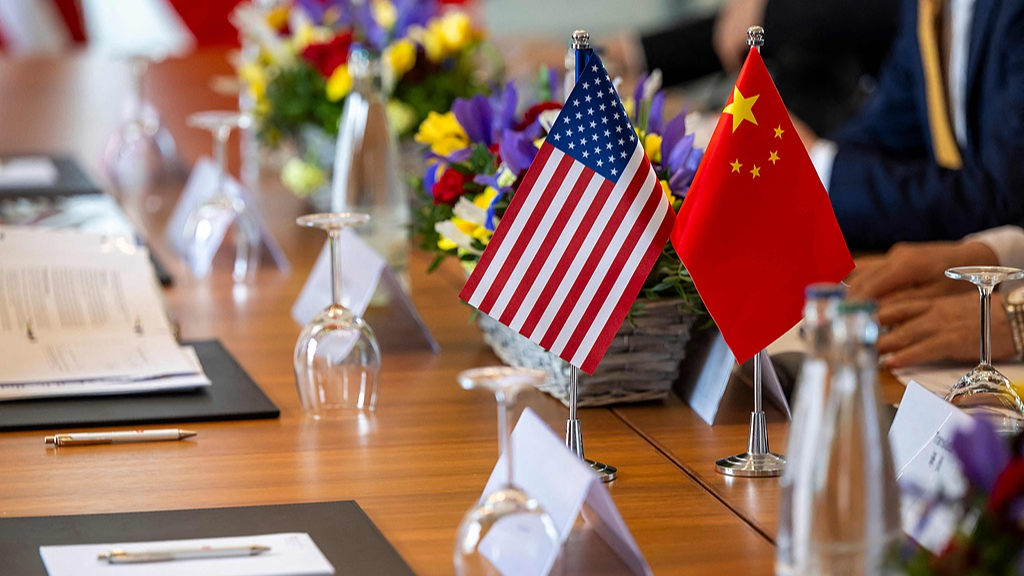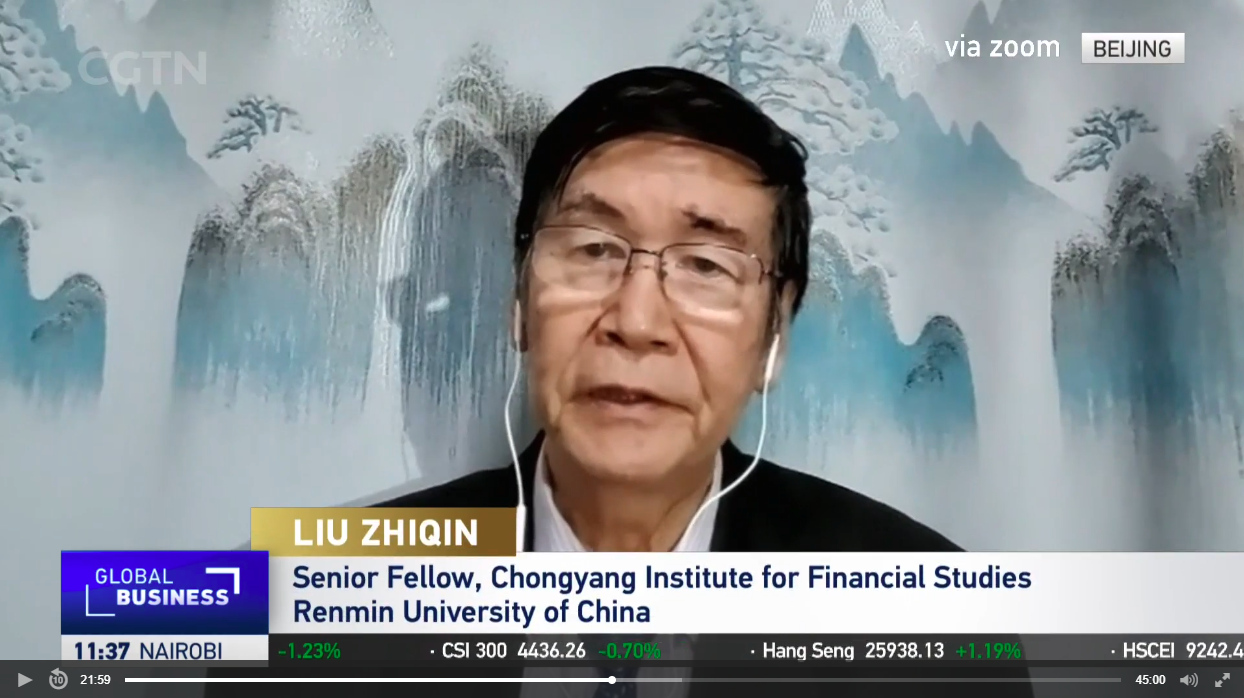Commentaries
Your Present Location: Teacher_Home> William Jones> CommentariesWhy the trade talks in Spain are vital for a fragile world economy
Why the trade talks in Spain are vital for a fragile world economy

The photo shows Chinese and U.S. flags prior to a meeting between officials of the two countries to discuss trade and tariffs in Geneva, Switzerland, May 10, 2025. /CFP
Editor's note: William Jones, a special commentator on current affairs for CGTN, is a former Washington bureau chief for Executive Intelligence Review News Service and a non-resident fellow of the Chongyang Institute for Financial Studies. The article reflects the author's opinions and not necessarily the views of CGTN.
Chinese Vice Premier He Lifeng is meeting U.S. officials in Spain today to discuss bilateral trade and economic issues.
The new round of talks, to run till September 17, comes as the 90-day reprieve given by U.S. President Donald Trump to TikTok ends on September 17. This was the deadline given to TikTok to continue to operate in the U.S. despite its not being sold to an American company, and it remains unclear if it will be extended.
This is the fourth meeting. The arbitrary way in which Trump is wielding his tariff threats has not gone well with China, which adheres to a more orderly system of operation.
The U.S. president's erratic treatment of trade partners has also created a great deal of uncertainty in world markets and a considerable amount of bad feelings toward the U.S. even among world leaders who ordinarily maintain cordial relations with it.
But the U.S. is too important to avoid – or to ignore. So every nation is attempting to find a way to deal with this somewhat mercurial U.S. leader. The fact of the matter is that much of his envisioned program does not show a great deal of success in accomplishing his intended goals.
Trump claims that tariffs are bringing in a great deal of money, but many countries are simply seeking other outlets for their purchases rather than pay the higher prices resulting from the tariffs. China, for instance, has shifted most of its soybean purchases from the U.S. to Brazil. It is unlikely that Beijing would upset what is now a stable supply chain in order to appease the U.S. by paying a higher price for American soybean.
The tight restrictions that the U.S. is placing on the sale of anything that it deems of "dual use," from semiconductor chips to cytometers to telecommunications equipment, have seriously limited access to U.S. high-tech products. The arbitrary use of tariffs has also roiled world markets, disturbing the flow of goods that provide the lifeblood of the world economy.
Trump's whims have totally upset economic development predictability in the long term. And yet the president is no closer to achieving a revival of the American economy than when he first came in. In fact, he may be further from his goal. His tariff plans and his arbitrary use of the "national security" gambit are being contested in the courts, creating a good deal of uncertainty as to whether he can legally implement them.

Customers shop at a Walmart store in Los Angeles County, California, the United States, May 20, 2025. /CFP
Furthermore, Trump's attempts to deport illegal immigrants have affected the supply of cheap labor needed for U.S. industries and farms. While countries like South Korea have shown interest in investing in America, the latest expulsion of South Korean workers from a U.S. factory in Georgia has created something of a backlash.
Other companies, which have expressed interest in investing in America and thus avoid paying the tariffs, are beginning to be concerned over the dearth of skilled workers who have for many years provided the backbone of the key U.S. auto and aircraft industries.
While Trump promised setting up vocational schools to train a new generation of skilled laborers, the new Department of Government Efficiency and other cost-cutting measures have limited the ability of the federal government to implement any such program. Much of this has been left to the debt-strapped states, some of which are having a hard enough time even making ends meet.
As these effects become clear to the White House in the economic data, Trump may reverse gears. This could take some time, however, as he is surrounded by people who believe that they have to give the president "good news" if they want to keep their jobs.
While Trump has imposed a 50 percent tariff on Indian goods in retaliation for India continuing to purchase Russian oil, a similar measure on China would be devastating for the U.S. economy, which is so much more dependent on Chinese goods for maintaining the standard of living of Americans. Maintaining equilibrium with China on economic matters is a prerequisite for maintaining economic growth and avoiding hyperinflation.
But given the president's stubborn insistence on the correctness of his course, perhaps the best that can be hoped for in the meeting in Spain is a continuation of the status quo. If U.S. Secretary of Treasury Scott Bessent is provided with any leeway to alleviate the more restrictive measures, there may even be some improvement.
Forbidding the use of TikTok could affect the lives of many of Trump's supporters, especially among the youth, while further aggravation of the trade restrictions will come back to bite America even more seriously than it would China, which has more built-in resilience in its economy.
The world hopes that the Spain meeting will retain stability in the vital China-U.S. relationship, since any major trade fight between these two giants could bring down the fragile global trade and economic system.
Key Words: World Economy























































































 京公网安备 11010802037854号
京公网安备 11010802037854号





